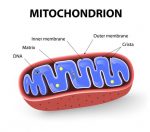Grant Supports Potential Disease-modifying Parkinson’s Therapies
Written by |

The Silverstein Foundation for Parkinson’s with GBA is supporting early work by AcureX Therapeutics to bring into patient testing potential disease-modifying treatments for Parkinson’s disease.
Specifically, grant funding will go to advance the development of small molecule compounds targeting the path involving a specific protein in mitochondria — the powerhouses of cells. The protein, called Miro1, plays a role in mitophagy, which is the cell’s way of cleaning itself of damaged mitochondria.
Defects in mitophagy — and mitochondrial dysfunction in general — have long been implicated in the development of Parkinson’s disease, either sporadic or familial. Targeting them is thought to represent a potential therapeutic strategy.
“We are proud to have the support of The Silverstein Foundation for Parkinson’s with GBA,” William D. Shrader, PhD, co-founder and CEO of AcureX, said in a press release. “This grant is a strong vote of confidence in AcureX’s ability to advance our drug discovery and development efforts around Miro1, an important target at the convergence of multiple pathological and genetic pathways associated with PD [Parkinson’s disease].”
The grant amount was not specified in the release.
Using a proprietary platform to identify and screen small molecule compounds, AcureX has selected molecular targets and treatment candidates that might restore mitophagy by halting abnormal signaling to Miro1.
This new class of small molecule compounds may serve as potential disease-modifying medications for Parkinson’s, the company reported, by restoring health to dopamine-producing neurons or preventing their further loss.
“With our therapeutic strategy, focused on correcting Miro1 signaling, coupled with the use of Miro1 as a clinical biomarker of drug efficacy, we aim to develop therapies with the potential to stop disease progression,” Shrader said.
AcureX is hoping to take one or more of these therapy candidates, with a potential for safety and effectiveness identified in ongoing preclinical work, into clinical trials by the close of 2023.
Another company co-founder, Xinnan Wang, MD, PhD, an assistant professor in the department of neurosurgery at Stanford University, focused her post-doctoral work on mitochondrial dysfunction in Parkinson’s disease.
This work discovered, Wang reported in a 2016 Stanford news story, that “in Parkinson’s patients’ cells, Miro [protein] is stuck to mitochondria [in neurons], so damaged mitochondria can’t be removed. Damaged mitochondria pile up, causing energy shortfalls and accumulation of toxins, which eventually kill the cell.”
A nonprofit, The Silverstein Foundation focuses on investing in candidates to treat and prevent Parkinson’s in people with glucocerebrosidase (GBA) mutations, a known risk factor for the disease.
“The Foundation is committed to supporting the development of innovative therapeutics that leverage genetic insights to treat and reverse the neurodegenerative process in PD. We are pleased to support AcureX Therapeutics as part of our mission to help bring disease-modifying therapeutic options to PD patients,” said Jonathan Silverstein, the foundation’s founder.
Silverstein works in partnership with The Michael J. Fox Foundation for Parkinson’s Research.





